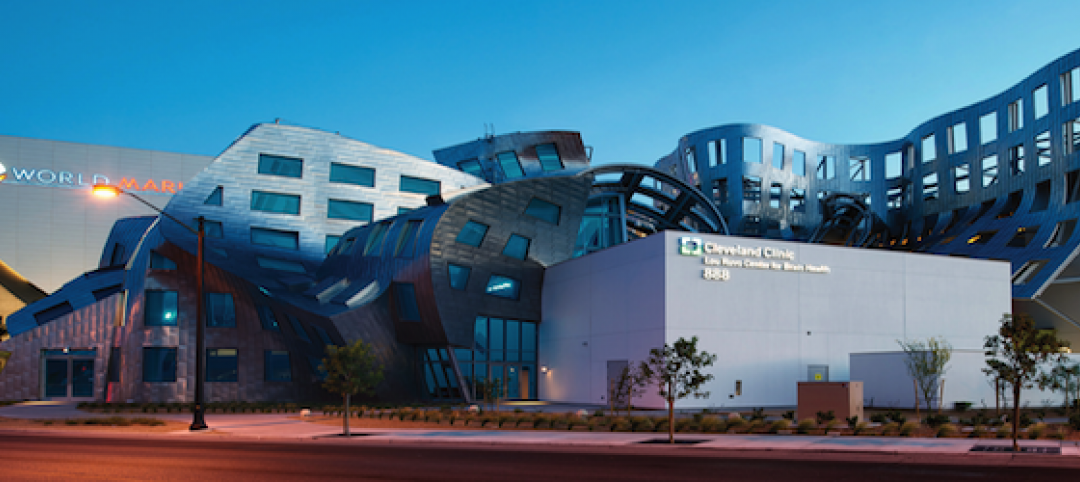KSS Architects co-founder Allan Kehrt, FAIA, LEED AP, PP will step down from his role as senior design partner to an emeritus position at the beginning of 2012 - a move that has been ongoing for more than 10 years as part of the firm's ownership transition plan.
Since establishing KSS Architects in 1983 with colleagues Michael Shatken and Rafael Sharon, Kehrt has helped the firm grow from a staff of three focused on residential design, into a 40-person company with offices in Princeton and Philadelphia. With the leadership of its six partners - Kehrt, Shatken, Edmund Klimek, Pamela Lucas Rew, David Zaiser, and Merilee Meacock - KSS has risen above recent economic challenges and developed an award-winning portfolio of projects across the nation in the markets of higher education, K-12 education, industrial, commercial, corporate interiors, municipal design and sustainable design.
"The past year was one of the strongest we have had in the market," Shatken said. "Allan shaped our core values about design excellence as well as client relationships, which all of the partners have instilled throughout the firm. As a result, our breadth of work and our national presence continue to grow."
"I will admit it's hard to back away from KSS after 28 years," added Kehrt. "But it's is something we have been planning for many years. I have absolute confidence that Michael and our next generation will continue to add to the exceptional achievements of KSS for many, many years. It's been a great ride!"
Kehrt's legacy of projects include Rutgers University's Biomedical Engineering Building, the renovation and expansion of Cornell University School of Hotel Administration, the recent new campus center at The Richard Stockton College of New Jersey and Princeton Township's Municipal Complex.
In 2001, Kehrt was elevated to the American Institute of Architects' College of Fellows, an honor bestowed to only 3 percent of all registered architects in the U.S. In 2008, Kehrt was nominated to the AIA's Jury of Fellows, a three-year post, and served as a chairman in 2010. Kehrt was also named Architect of the Year by AIA New Jersey in 2006.
Active in the design education community, Allan has served as faculty, guest lecturer, or juror at many colleges of architecture in the east, including the University of Pennsylvania, Philadelphia University, Moore College of Art & Design, New Jersey Institute of Technology and his alma mater Virginia Polytechnic Institute and State University, where he will continue on its Advisory Board. He has presented and lectured for many professional organizations including the American Institute of Architects and the Society of College and University Planning. BD+C
Related Stories
| Oct 13, 2010
Editorial
The AEC industry shares a widespread obsession with the new. New is fresh. New is youthful. New is cool. But “old” or “slightly used” can be financially profitable and professionally rewarding, too.
| Oct 13, 2010
Test run on the HP Z200 SFF Good Value in a Small Package
Contributing Editor Jeff Yoders tests a new small-form factor, workstation-class desktop in Hewlett-Packard’s line that combines performance of its minitower machine with a smaller chassis and a lower price.
| Oct 13, 2010
Prefab Trailblazer
The $137 million, 12-story, 500,000-sf Miami Valley Hospital cardiac center, Dayton, Ohio, is the first major hospital project in the U.S. to have made extensive use of prefabricated components in its design and construction.
| Oct 13, 2010
Thought Leader
Sundra L. Ryce, President and CEO of SLR Contracting & Service Company, Buffalo, N.Y., talks about her firm’s success in new construction, renovation, CM, and design-build projects for the Navy, Air Force, and Buffalo Public Schools.
| Oct 13, 2010
Hospital tower gets modern makeover
The Wellmont Holston Valley Medical Center in Kingsport, Tenn., expanded its D unit, a project that includes a 243,443-sf addition with a 12-room operating suite, a 36-bed intensive care unit, and an enlarged emergency department.
| Oct 13, 2010
Modern office design accentuates skyline views
Intercontinental|Exchange, a Chicago-based financial firm, hired design/engineering firm Epstein to create a modern, new 31st-floor headquarters.
| Oct 13, 2010
Hospital and clinic join for better patient care
Designed by HGA Architects and Engineers, the two-story Owatonna (Minn.) Hospital, owned by Allina Hospitals and Clinics, connects to a newly expanded clinic owned by Mayo Health System to create a single facility for inpatient and outpatient care.
| Oct 13, 2010
Biloxi’s convention center bigger, better after Katrina
The Mississippi Coast Coliseum and Convention Center in Biloxi is once again open for business following a renovation and expansion necessitated by Hurricane Katrina.
| Oct 13, 2010
Tower commemorates Lewis & Clark’s historic expedition
The $4.8 million Lewis and Clark Confluence Tower in Hartford, Ill., commemorates explorers Meriwether Lewis and William Clark at the point where their trek to the Pacific Ocean began—the confluence of the Mississippi and Missouri Rivers.
| Oct 13, 2010
Maryland replacement hospital expands care, changes name
The new $120 million Meritus Regional Medical Center in Hagerstown, Md., has 267 beds, 17 operating rooms with high-resolution video screens, a special care level II nursery, and an emergency room with 53 treatment rooms, two trauma rooms, and two cardiac rooms.
















